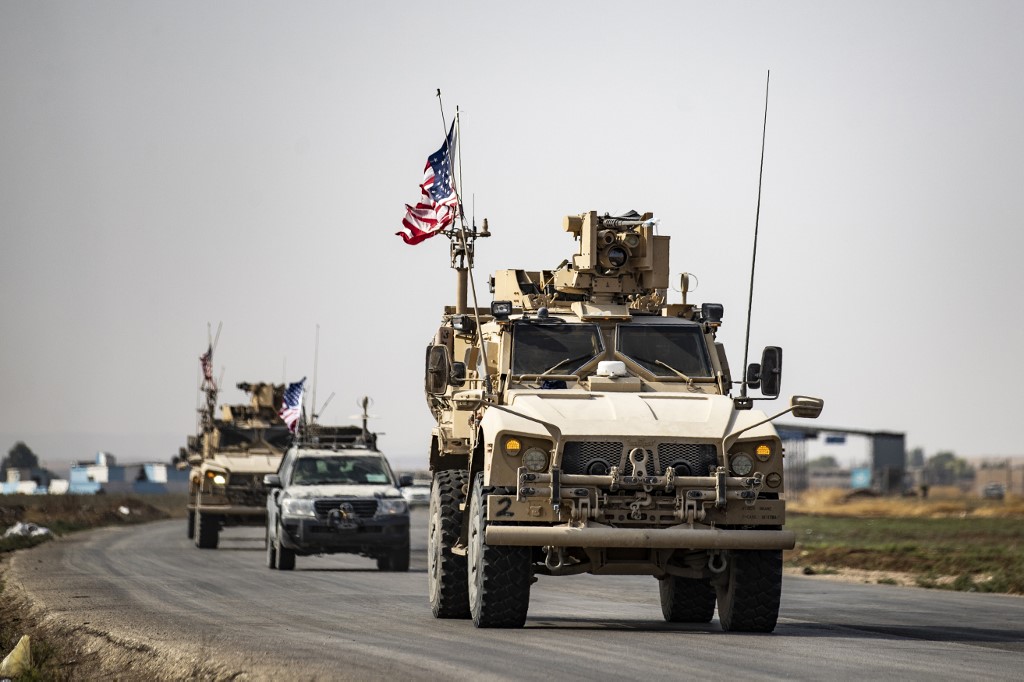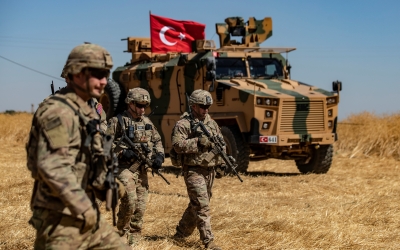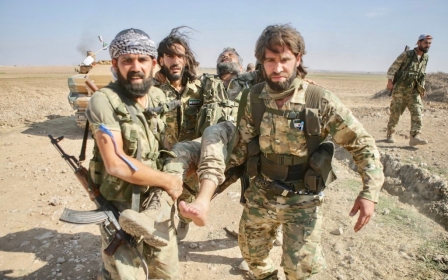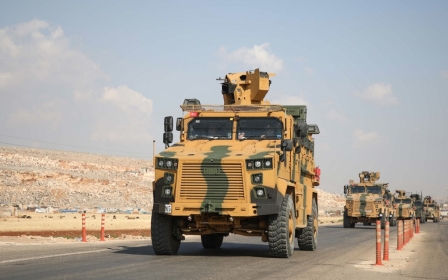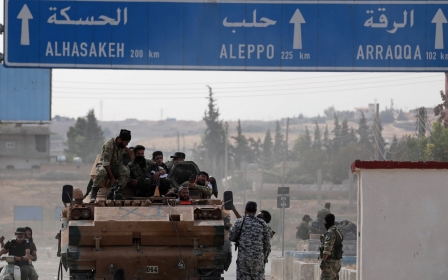What are the real reasons for Turkey's operation in Syria?
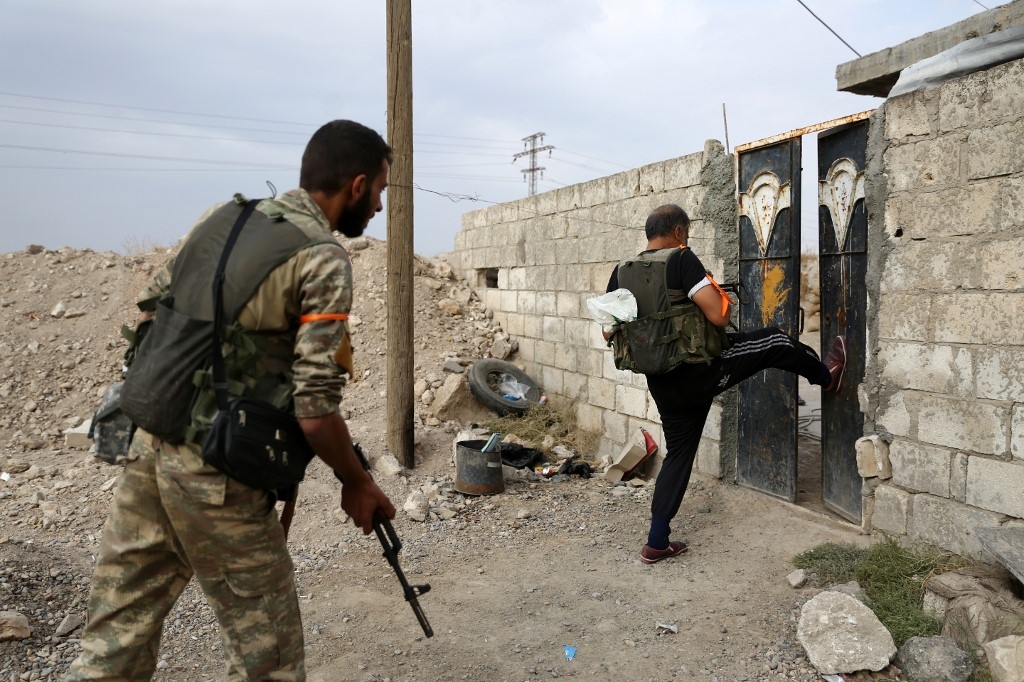
Ever since things started to go badly wrong in Syria after the uprising prompted by the 2011 Arab Spring, the customary fog of war has morphed into an impenetrable black box.
None of the intervening political actors - Turkey, the US, Iran, Russia, Israel, UAE, Qatar and Saudi Arabia - calculated correctly, nor did the various non-state extremist groups associated with al-Qaeda and later the Islamic State (IS), and a variety of anti-Damascus Syrian insurgencies.
No international conflict has ever been this opaque, multi-faceted, and beset by the play of contradictory, and even self-contradictory, national, regional and global political forces.
A variety of manipulative agendas - in which facts, intentions and motivations are subordinated to the cookie-cutter rigidity of wider political goals that are rarely acknowledged - are obscuring the realities of this Turkish military operation.
Fundamental miscalculations
New MEE newsletter: Jerusalem Dispatch
Sign up to get the latest insights and analysis on Israel-Palestine, alongside Turkey Unpacked and other MEE newsletters
Several fundamental miscalculations by non-Syrian actors have contributed to the devastation of Syria, the massive suffering of its people, the deaths and injuries of hundreds of thousands, and the displacement of millions.
This has created a set of circumstances with little prospect of producing a satisfactory ending.
The most serious miscalculation, shared especially by Ankara and Washington, was that a military intervention could quickly tip the balance, producing the regime change in Damascus that has been sought for decades by the US and Israel.
Overlooked were the capabilities of Iran and Russia to offset anti-Assad interventions, a failure to appreciate the domestic support enjoyed by the government in Damascus, and the battlefield effectiveness of Syria’s armed forces.
During the years of disorder, the struggle for control of the Syrian state became entangled with other political preoccupations
During the years of disorder, the struggle for control of the Syrian state became entangled with other political preoccupations, especially the US-led struggle against IS, and Kurdish efforts to pursue their goals of self-determination.
Syrian Kurds welcomed collaboration with US military forces to fight IS, hoping to gain political independence under the leadership of the People’s Protection Units (YPG). The fact that the YPG is closely linked to the Kurdistan Workers’ Party (PKK) has been overlooked by Washington. This forgets that the Kurds have been engaged in an armed struggle against Turkey for more than three decades, costing more than 40,000 lives.
Mixed signals
As complicated, contested and relevant as is this background, the foreground is even murkier.
US President Donald Trump’s diplomacy, as usual, irresponsibly sent the most mixed signals possible to all interested parties, further aggravated by inflammatory insults mindlessly directed at Kurdish identity and aspirations. To Ankara, the abrupt pullout of US military forces seemed clearly intended and was reasonably interpreted as a green light for a Turkish offensive.
This signal was soon followed by irrational threats from Trump, warning Turkey of dire consequences if it failed to follow White House orders. This abrupt and confusing change of direction seems to have been prompted by domestic US politics, particularly the harsh criticism of Trump by congressional Republicans.
It is not possible to understand this debate without taking into account the intense international campaign waged against the Turkish government before these recent events. External enemies seized the occasion to brand the Turkish incursion as “ethnic cleansing”, with some even alleging “slaughter” and “genocide”. It was contended that Turkey was disgracing Nato, and should be expelled.
US diplomacy was also sharply attacked for its alleged cynical abandonment of Kurdish national aspirations. These anti-Turkish views are not completely wrong, but they have certainly been manipulated and magnified for wider purposes unrelated to the cross-border attack.
Restoring sovereignty
Turkish Foreign Minister Mevlut Cavusoglu has set forth, in clear and plausible terms, the narrow scope of the military undertaking and Turkey’s overall intentions. Turkey was seeking a “safe zone” on its borders by removing the YPG, not launching an attack on the Kurds.
Cavusoglu has said that the Turkish aim was limited to clearing a 30-kilometre-deep strip of the YPG and IS presence, and allowing those Syrian refugees in Turkey who wished to return to Syria to settle in this cleared land.
A secondary objective was to restore Syrian sovereignty over its own territory, which meant rejecting as untenable the project of a Kurdish autonomous region of Rojava in northeastern Syria.
Inside Turkey, even among those deeply opposed to President Recep Tayyip Erdogan and the ruling AKP, there exists a consensus supportive of this ongoing military operation, so long as it is limited to border security and counterterrorism goals.
There are good reasons why Kurds, even if not sympathetic to the YPG, are unnerved about what is happening - especially after Trump pulled the rug out from under them, pouring acid in their wounds by saying that their protection was unworthy of being treated as a matter national interest. The Kurdish reaction - neither stupid nor surprising - was to quickly reverse their own alignments, realigning with Damascus.
Constructive diplomacy
It is difficult to evaluate the “ceasefire” announced by US Vice President Mike Pence in Ankara, or even whether the terminology of ceasefire is appropriate. Cavusoglu was careful to call what was agreed upon a “pause” of five days in an ongoing cross-border operation.
The language is important. If fighting resumes, Turkey will be accused of breaking the ceasefire, while Turkey will retort that it only agreed on a pause. Much likely depends on whether YPG forces leave, or stay and engage the Turkish military presence.
As of now, it seems that Turkey is getting the results it sought, through an agreement with Russian President Vladimir Putin on Turkey's sought-after "safe zone".
The manner of the US withdrawal and its feckless, wavering diplomacy, means Russia and Iran can take heart, while Israel and Saudi Arabia might be losing sleep.
My plea, amid such wilful confusion, is to withhold judgment and the pretence of clarity - and above all, to avoid further intervention or otherwise escalating the scope or intensity of the conflict, to seek negotiations limited to regional parties, and to stay mindful of humanitarian concerns.
The views expressed in this article belong to the author and do not necessarily reflect the editorial policy of Middle East Eye.
This article is available in French on Middle East Eye French edition.
Middle East Eye delivers independent and unrivalled coverage and analysis of the Middle East, North Africa and beyond. To learn more about republishing this content and the associated fees, please fill out this form. More about MEE can be found here.



